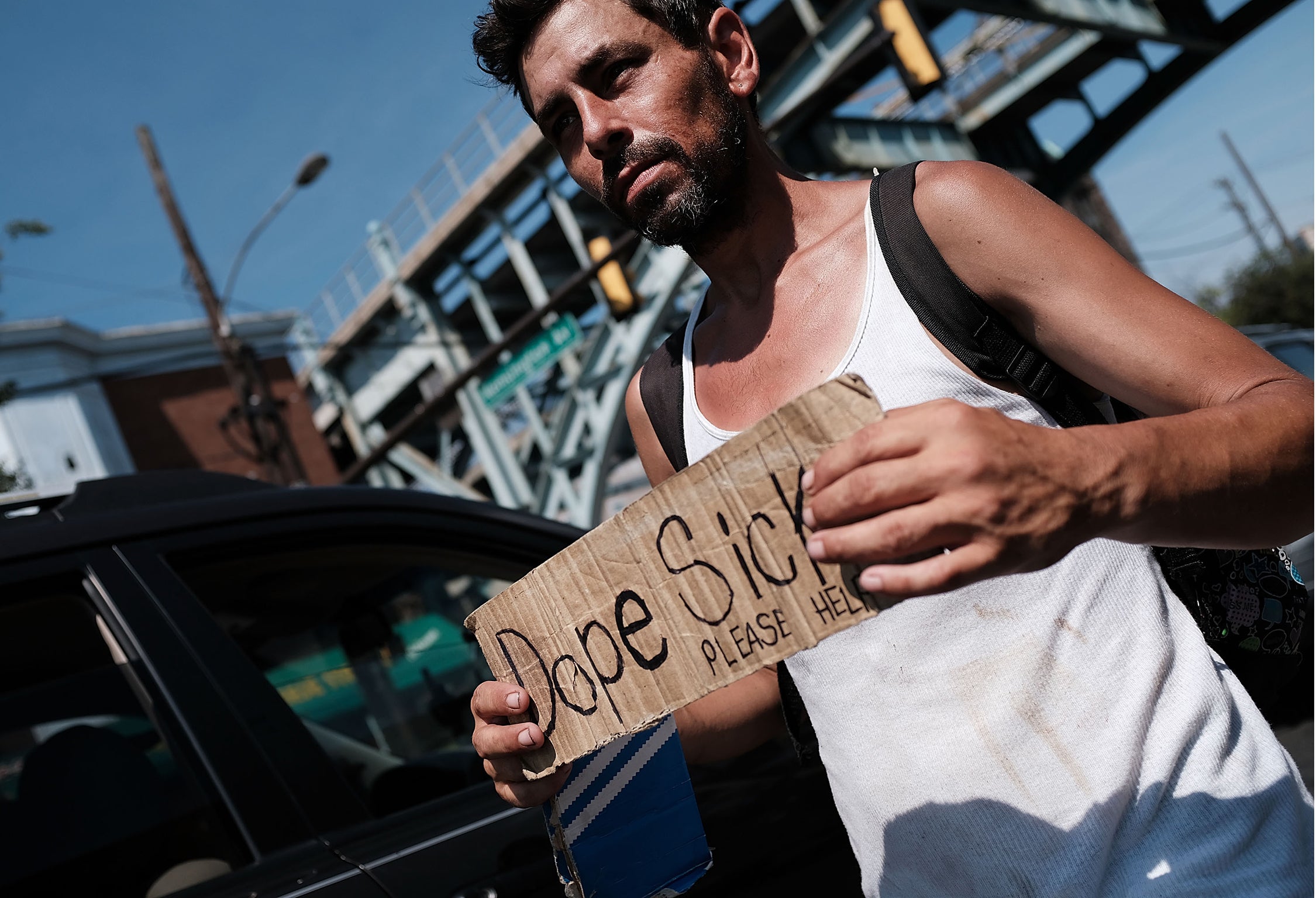Druggie zombie junkies, and the language battle at the heart of our attitudes towards addiction
Unless there is a change in how we speak about drug users, it is easy to justify an environment where treatment and support is shrinking – which it is at an alarming rate


Confidence and self-belief are fragile states. For most of us they can either be nurtured or destroyed by the way others describe us. So consider for a moment what terms like “junkie”, “crack-head” or “zombie” do for the self-esteem of people who develop problems with drugs.
Even the less colloquial phrases – like drug-abuser and getting clean (or dirty) – are loaded with judgement. It would be unheard of describe a person with diabetes as having “dirty” blood results but this description is still used for positive drug tests.
The solution seems easy. We should just avoid using loaded language and derogatory terms to describe people who find themselves in this situation. After all this is not a niche group, hundreds of thousands of people have problems with drugs and alcohol, so a change in vocabulary could have a significant impact.
The stigma associated with problem drug use is likely to have deterred many from seeking help as they either don’t recognise themselves as fitting with a stereotype or are perhaps too ashamed to speak to anyone.
But even if every one of us suddenly changed the way we describe people who have problems with drugs, there is no guarantee that our underlying beliefs would have altered. I suspect that we merely learn what’s acceptable to say, rather than change how we really think. Adopting a more acceptable vocabulary to artificially signal acceptance and tolerance might be worse: it would give the false impression that our negative attitudes have changed.
The roots of stigmatising language lie not just in fear but in judgements we make about other people. Many people view problem drug use as self-inflicted or an individual error of judgement. On one level this is understandable if you are using your own life to judge the decisions others have made, even if their experience bears no resemblance to your own.
Addiction and dependency don’t develop randomly, key ingredients are needed to amplify the risk. Trauma, mental health problems, poverty and social disadvantage all contribute. You may accept that, but until this is witnessed first-hand, it is difficult to fully appreciate the way drugs mitigate these problems and make survival possible.
This proximity acts as a powerful agent of attitudinal change. Knowing someone or coming into contact with an individual who has problems with drugs challenges many of the preconceptions that we hold.
They appear like you and I, they dress like you and I. There may be no outward sign that sets them apart, contrary to the image you have in your mind of someone who has a problem with drugs; teeth missing, dishevelled and with the thousand mile stare. Some will fit this image but the majority don’t. There isn’t an easy way of discerning who has a problem.
Understanding and knowledge can help change attitudes and therefore the descriptions we all choose to use. In turn, this collective change has the potential to improve treatment funding and uptake, as those impacted adversely by drugs feel less embarrassed about seeking help and there is somewhere for them to get that support.
So unless there is a change in our attitudes and language it is easier to justify an environment where drug treatment and support is shrinking – which it is at an alarming rate. But it also holds back the adoption of evidence-based treatment. Viewing people with drug problems as unimportant or as a group that only exists in areas of deprivation reduces the political priority given to them.

We know that drug consumption rooms save lives, as does the availability of Naloxone, a drug that reverses the effects of opiate overdose, but these life-saving interventions are not funded as they should be.
So in that sense language does matter. Descriptors based on a genuine empathic understanding would signal acceptance and help move people from a status of inhuman and unworthy to one of value. Reversing the record numbers dying as a result of problems with drugs relies on us all reflecting on how we describe our brothers, sisters, sons, daughters and others we love and live alongside. Language and the attitudes they represent are deeply powerful, and that grants us far more power than we realise.
Join our commenting forum
Join thought-provoking conversations, follow other Independent readers and see their replies
Comments
Bookmark popover
Removed from bookmarks